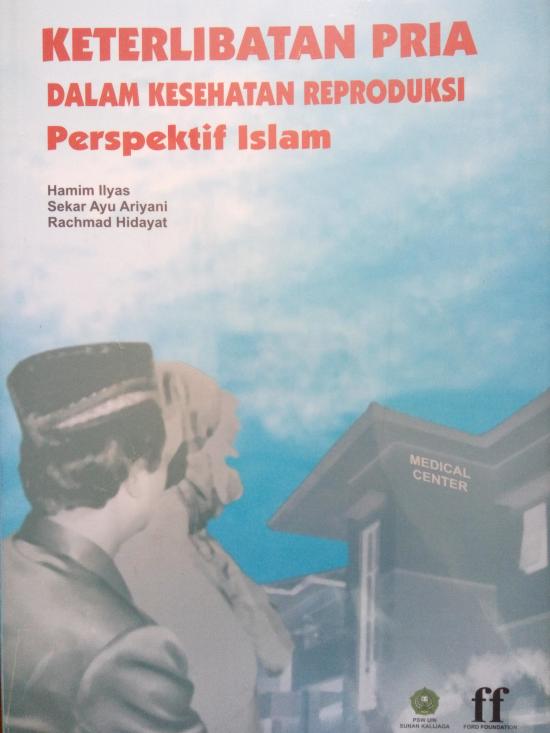Judul buku : Keterlibatan Pria dalam Kesehatan Reproduksi Perspektif Islam
Penulis : Hamim Ilyas, dkk.
Penerbit : PSW UIN Sunan Kalijaga
Tahun Terbit : 2006 (Cetakan Pertama)
This book evolved out of a research project on men's involvement in reproductive health conducted by the center for women studies, State Islamic University Sunan Kalijaga. The aim of the project is to explore strategic aspects of men's involvement in reproductive health which include: the reasons, forms, it's implementation within reproductive stages, crucial issues, and the stages to its implementation. In addition, the project is also expected to explore and Islamic normative-theological foundation on men's involvement in reproductive health. The research is useful in providing necessary raw material to design a training program curriculum concerning men's involvement in reproductive health as a part of the project on Men's Involvement in Reproductive Health and Equal Partnership and in making on policy to uphold men's involvement in reproductive health.
This research project employed a qualitative approach and applied three phases of data collection. In the first phase, a survey was conducted in which questionnaires were distributed to fifty respondents. In the second phase, nineteen informants were interviewed, and these informants were selected from the respondents who participated in the first phase. In the third phase, focus group discussion (FGD) we're carried out in small groups which involved selected based on their activity in gender-related issues. Women's empowerment and advocacy, and the area of reproductive health.
This research found that : 1. Men's involvement in reproductive health is suitable with the essential conception concerning men and women relationship as a rahmatan lil 'alamin (blessing for all being). 2. Men's involvement in reproductive health is still limited. 3. The lack of awareness, knowledge, and skills regarding reproductive duties have become the major factors causing the lack of men's involvement in reproductive health. 4. Men's opportunity to be further involved in reproductive responsibility is very immensed. 5. Men and women have different sexuality. 6. The use of contraception is an essential instrument to solve the problems in reproductive activities. 8. The existing reproductive education practices needs fundamental improvement.
